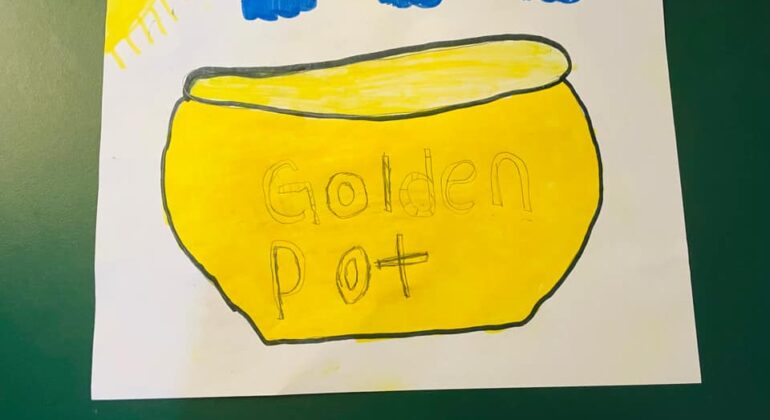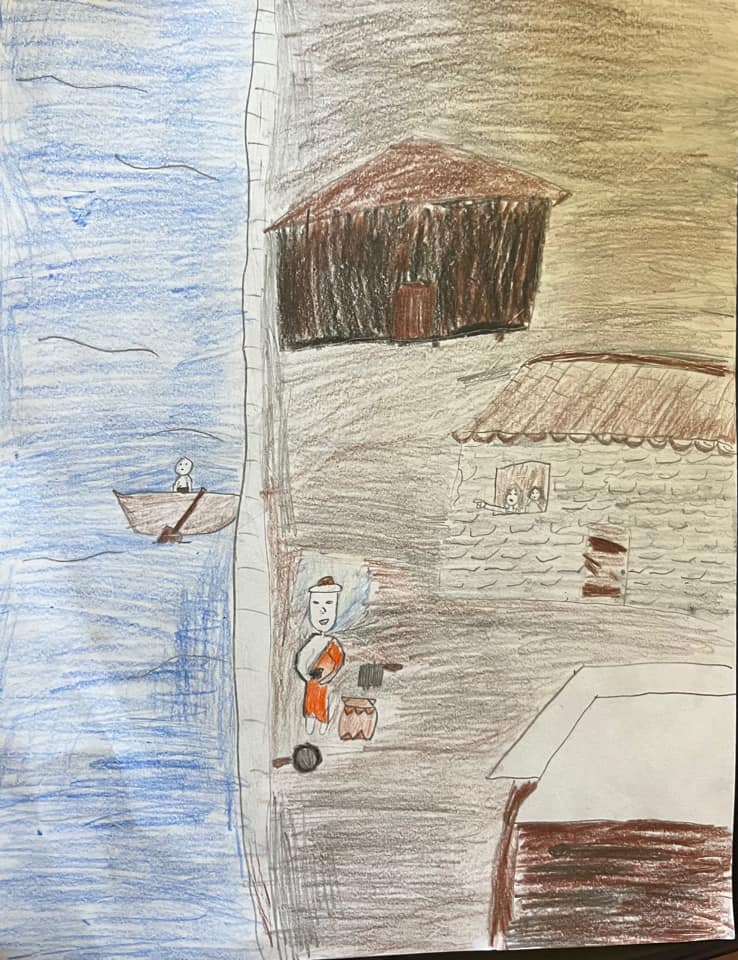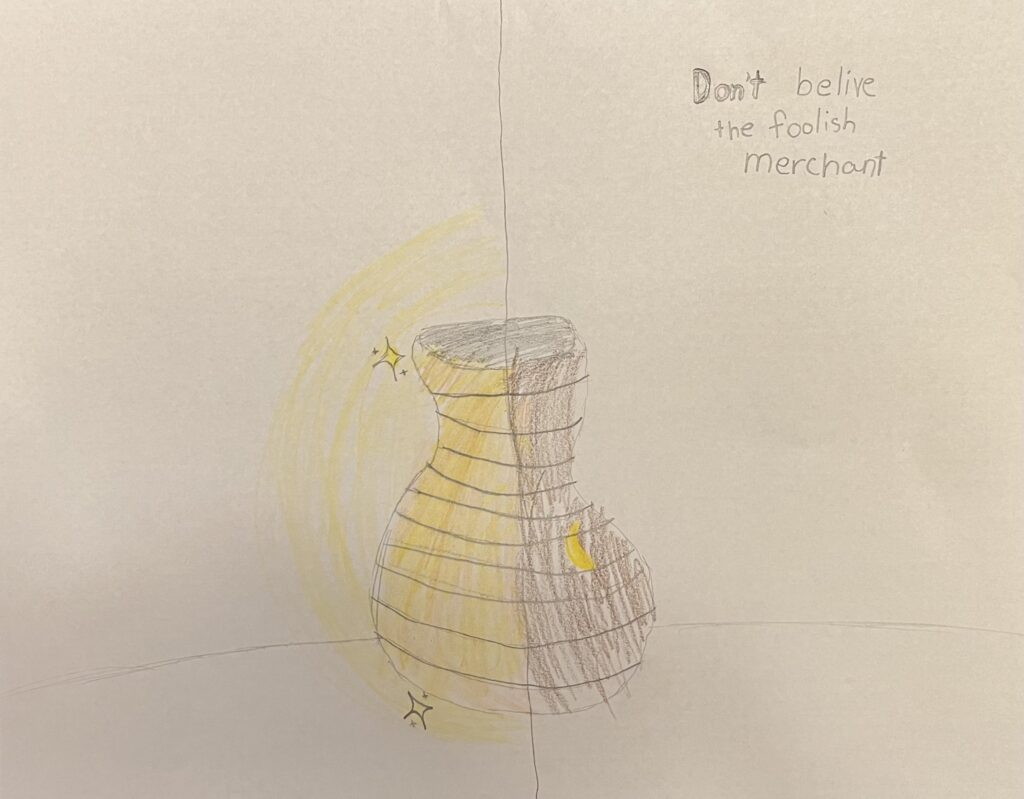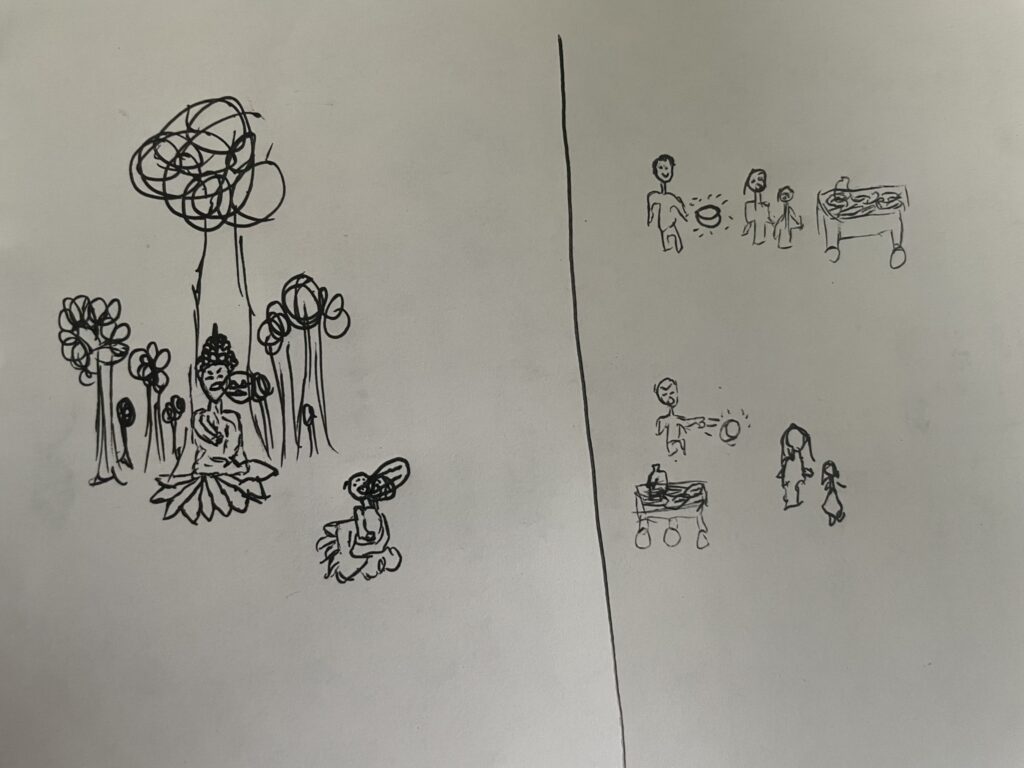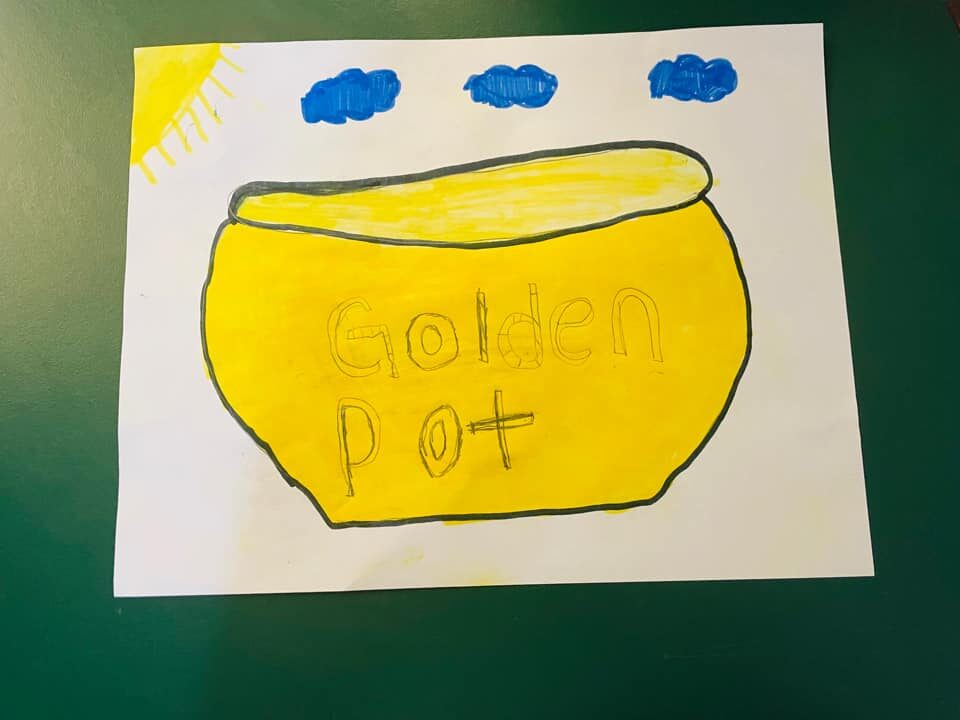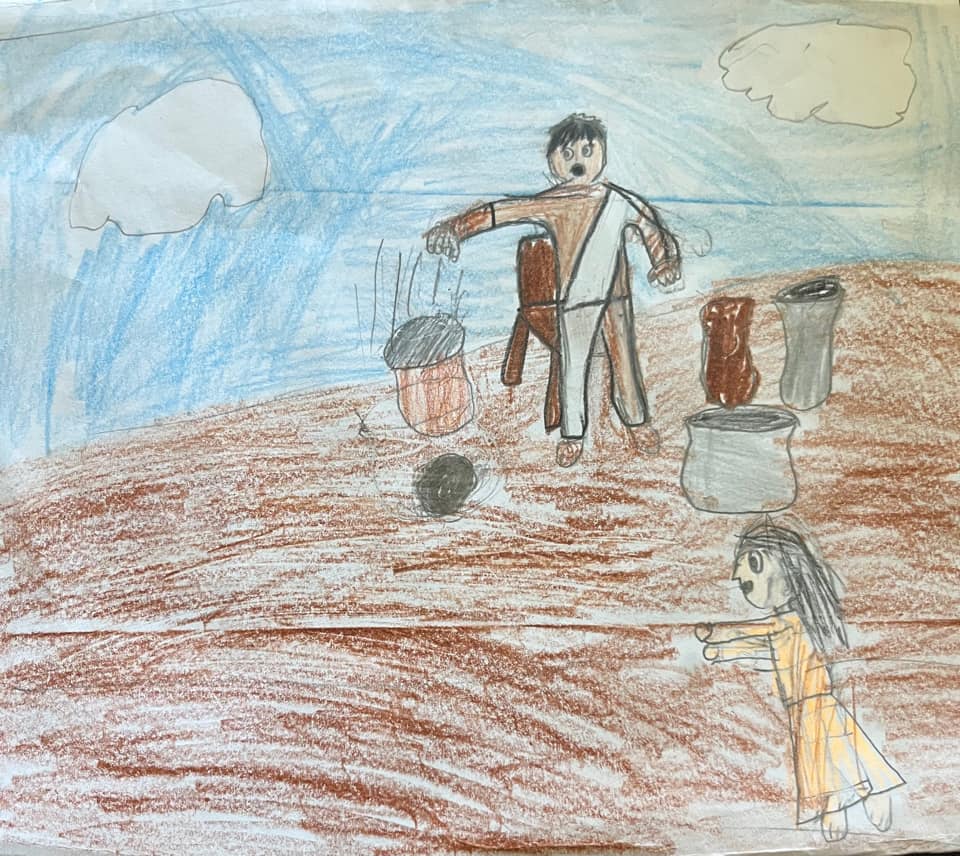/During the Buddha’s life, one young man heard the Buddha’s Teachings and ordained as a monk. He then received instruction for meditation and went to meditate alone in the forest. However, even after 3 months of meditating he did not achieve anything, so he returned to the monastery with the idea he will disrobe (become a lay person). His friends when they learned his plan took him to the Buddha. The Buddha then encouraged the monk by warning him that he may suffer long, like the hawker [street seller] Seri, who lost a golden bowl worth a hundred thousand pieces of money./
In the past in the kingdom of Seri, five aeons [very long periods of time] ago, the Bodhisatta [the Buddha-to-be] made his living by selling pots and pans, and was called ‘the Serivā.’ In the company of another dealer in the same wares, a greedy fellow who was also known as ‘the Serivā,’ he came across the river Telavāha and entered the city of Andhapura. Apportioning the streets between the two of them, he set about selling his wares round the streets of his district, and the other did the same in his district.
Now in that city there was a family who had fallen on hard times. Once they had been rich merchants, but by the time of our story they had lost all the sons and brothers and all their wealth. The only survivors were a girl and her grandmother, and they got their living by working when they were hired. Nevertheless, they had got in their house a golden bowl out of which in the old days the great merchant, the head of the family, used to eat; but it had been thrown among the pots and pans, and having been long out of use, was grimed over with dirt, so that the two women did not know that it was gold. To the door of their house came the greedy hawker on his round, crying, “Waterpots to sell! Waterpots to sell!” And the damsel [young woman], when she knew he was there, said to her grandmother, “Oh, do buy me a trinket, grandmother.”
“We’re very poor, dear; what can we offer in exchange for it?” “Why here’s this bowl which is no good to us. Let us change that for it.”
The old woman had the hawker brought in and seated, and gave him the bowl, saying: “Take this, sir, and be so good as to give your sister something or other in exchange.”
The hawker took the bowl in his hand, turned it over, and, suspecting it was gold, scratched a line on the back of it with a needle, whereby he knew for certain that it was real gold. Then, thinking that he would get the pot without giving anything whatsoever for it to the women, he cried, “What’s the value of this, pray? Why it isn’t worth half a farthing [a quarter of a penny]!” And therewithal he threw the bowl on the ground, rose up from his seat, and left the house.
Now, as it had been agreed between the two hawkers that the one might try the streets which the other had already been into, the Bodhisatta came into that same street and appeared at the door of the house, crying, “Waterpots to sell!” Once again the damsel [young woman] made the same request of her grandmother; and the old woman, replied, “My dear, the first hawker threw our bowl on the ground and stormed out of the house. What have we got left to offer now?”
“Oh, but that hawker was a harsh-spoken man, grandmother dear; while this one looks a nice man and speaks kindly. Very likely he would take it.” “Call him in then.” So he came into the house, and they gave him a seat and put the bowl into his hands. Seeing that the bowl was gold, he said: “Mother, this bowl is worth a hundred thousand pieces; I haven’t its value with me.”
“Sir, the first hawker who came here said that it was not worth half a farthing; so he threw it to the ground and went away. It must have been the efficacy of your own goodness which has turned the bowl into gold. Take it; give us something or other for it; and go your way.” At the time the Bodhisatta had 500 pieces of money and a stock worth as much more. The whole of this he gave to them, saying: “Let me retain my scales, my bag, and eight pieces of money.” And with their consent he took these with him, and departed with all speed to the riverside where he gave his eight coins to the boatman and jumped into the boat. Subsequently that greedy hawker had come back to the house, and had asked them to bring out their bowl, saying he would give them something or other for it. But the old woman flew out at him with these words, “You made out that our golden bowl which is worth a hundred thousand pieces was not worth even a half-farthing. But there came an upright hawker – your master, I take it – who gave us a thousand pieces for it and took the bowl away.”
Hereupon he exclaimed, “He has robbed me of a golden bowl worth a full hundred thousand pieces; he has caused me a terrible loss.” And intense sorrow came upon him, so that he lost command over himself and became like one distraught [deeply agitated from emotion]. His money and goods he flung away at the door of the house; he threw off his upper and under cloths; and, armed with the beam of his scales as a club, he tracked the Bodhisatta down to the riverside. Finding the latter already crossing, he shouted to the boatman to put back, but the Bodhisatta told him not to do so. As the other stood there gazing and gazing at the retreating Bodhisatta, intense sorrow seized upon him, his heart grew hot; blood gushed from his lips; and his heart cracked like the mud at the bottom of a tank, which the sun has dried up. Through the hatred which he had contracted against the Bodhisatta, he perished [died] then and there – this was the first time Devadatta-to-be [the man and monk who in next lives caused big troubles to the Buddha-to-be and finally the Buddha Himself] conceived a grudge against the Bodhisatta. The Bodhisatta, after a life spent in generosity and other good works, passed away to fare according to his deeds.
When the Supreme Buddha had ended this lesson, he, after Fully Awakening, uttered this verse:
1. “If in this faith you prove remiss, and fail
To win the goal whereto its teachings lead,
– Then, like the hawker called ‘the Serivā,’
Full long you’ll rue [feel sorry for] the prize your folly lost.”
After having thus delivered his discourse in such a way as to lead up to Arahatship, the Teacher expounded the Four Truths, at the close whereof the fainthearted monk was established in that highest fruit of all, which is Arahatship. And, after telling the two stories, the Teacher made the connection linking them both together, and identified the Jātaka by saying in conclusion, “In those days Devadatta was the foolish hawker; and I myself was the wise and good hawker.”
Suggestions for drawing:
A monk meditating in a forest, the wise seller of pots and pans, the foolish seller, the seller throwing the pot on the ground, the wise seller giving his things to the ladies, the wise seller on the boat, the Buddha admonishing the monk
Picture for inspiration: a golden pot
Jātakas – The Jātaka Translation or Stories of the Buddha’s Former Births – T.W. Rhys Davids, R. Chalmers, H.T. Francis, W.H.D. Rouse, E.B. Cowell, revised Ānandajoti Bhikkhu, 2021(1880) (2964p), edited, adapted, and added explanations by Ashin Saraṇa.
May you all be happy and healthy,
Ashin Sarana


